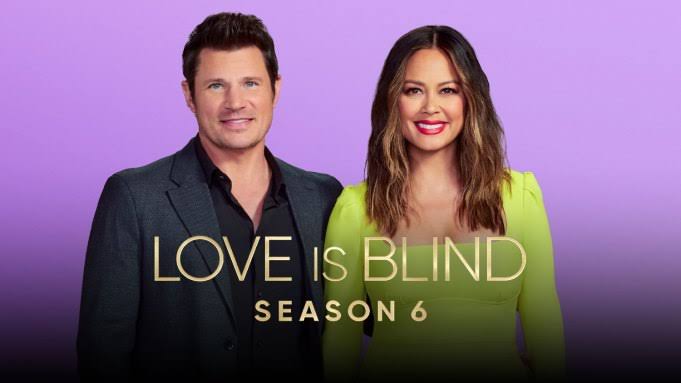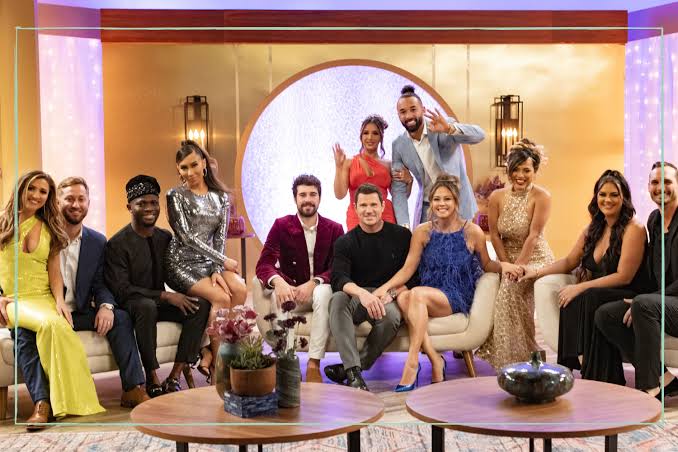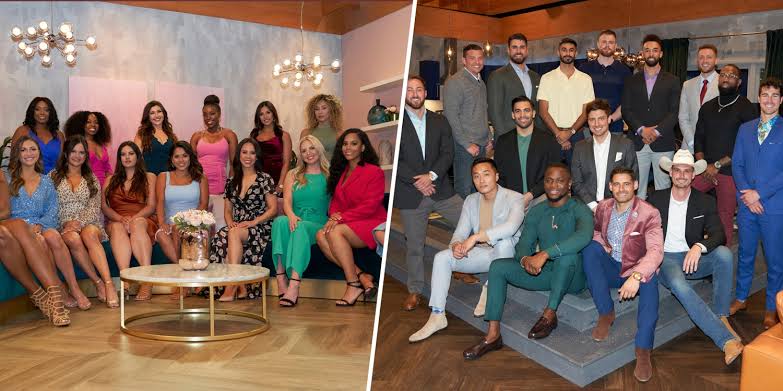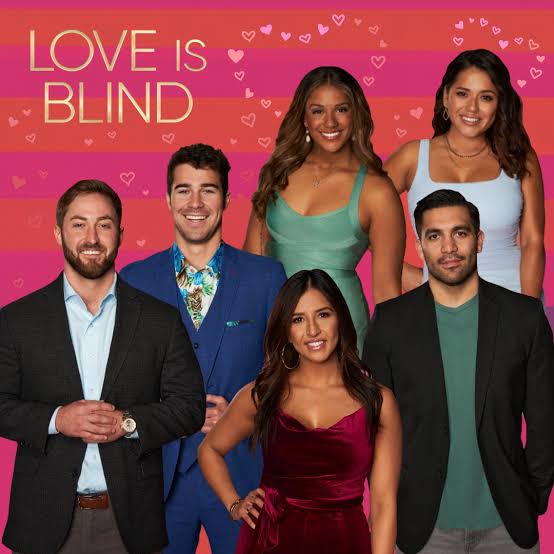
Table of Contents
Love is Blind Review: “With a mix of reality TV drama, emotional sensitivity, and social experimentation, ‘Love Is Blind’ challenges our perceptions of love and compatibility in the modern world. Those who want to be loved for who they truly are, rather than how they look, have signed up for a less conventional approach to modern dating. Read below for all the details related to this series, such as the Love Is Blind review, cast, and plotline.”

Introduction
“Love Is Blind,” a Netflix original series, has taken the world by storm with its unconventional approach to dating and relationships. The show, which premiered in February 2020, has sparked discussions, debates, and a fervent fanbase, making it a cultural phenomenon. With its blend of reality TV drama, emotional vulnerability, and social experiment, “Love Is Blind” challenges our perceptions of love, attraction, and compatibility in the modern world.
The Perfect Couple Cast, Review and Storyline
| Web Series Name | Love is Blind |
| Host | Nick Lachey, Vanessa Lachey |
| Creator | Chris Coelen |
| Director | Brian Smith, Timothy Baker |
| Executive Producer | Chris Coelen, Ally Simpson, Eric Detwiler, Brian Smith, Heather Crowe, Brent Gauches |
| Production Company | Kinetic Content |
| Rating | 6.2/10 (IMDB) |
| Release Date | 13 February, 2020 |
| Streaming Platform | Netflix |
| Season | 6 |
| Episode | 83 |
| Language | English |
| Genre | Reality, Romance |
| Country of Origin | United States |

Love is Blind Storyline (Plot Summary)
At its core, “Love Is Blind” is a social experiment designed to answer a fundamental question: Can love truly be blind? The show features a group of singles who, over the course of ten days, engage in a series of “dates” within specially designed pods. These pods are unique in that they allow the participants to converse freely but prevent them from seeing each other. The idea is to encourage deep, meaningful connections that are not influenced by physical appearance.
As the days progress, some participants form emotional bonds strong enough to lead to marriage proposals—all without ever laying eyes on their potential spouse. Once engaged, the couples finally meet face-to-face and are then whisked away to a romantic retreat to test their newfound relationships. The final test comes when they must decide whether to say “I do” at the altar or walk away from the relationship.

Love is Blind Review
“Love Is Blind” has elicited a wide range of reactions from viewers. Some see the show as a refreshing break from the superficiality that often plagues modern dating, while others view it as another manipulative reality TV series designed to exploit participants’ emotions for entertainment.
On one hand, viewers appreciate the show’s emphasis on emotional connection over physical attraction. The series resonates with those who believe that true love should be based on personality, values, and shared goals rather than appearances. This perspective is particularly relevant in an era dominated by dating apps where swiping left or right is often based solely on looks.

On the other hand, some viewers are skeptical of the show’s premise, arguing that it’s unrealistic to expect lasting love to develop under such artificial circumstances. The accelerated timeline—participants get engaged after just a few days—adds to the skepticism, as does the high-pressure environment created by the show’s producers. For many, the show’s premise seems too contrived to be taken seriously.
The Characters: Relatable and Flawed
One of the strengths of “Love Is Blind” is its cast of characters, who are both relatable and flawed. The show doesn’t shy away from showcasing the participants’ insecurities, fears, and past relationship baggage. For instance, Lauren and Cameron quickly became fan favorites due to their genuine connection and the challenges they face as an interracial couple. Lauren’s concerns about how their relationship will be perceived in the real world add a layer of depth to their story.

Jessica, another participant, became one of the show’s most polarizing figures. Her struggle between her emotional connection with Mark and her lingering attraction to another contestant, Barnett, created significant drama. Jessica’s actions, which included stringing Mark along while expressing doubts about their future, drew both sympathy and criticism from viewers.
Amber and Barnett’s relationship, filled with ups and downs, also captured viewers’ attention. Their journey from initial attraction to marriage was marked by challenges, including financial concerns and differing life goals. Despite these obstacles, they managed to stay together, showcasing the complexities of real-life relationships.
Love is Blind Media Review
“Love Is Blind” has received mixed reviews from critics and the media. Many praised the show for its innovative concept and the emotional depth of its participants. The series was lauded for pushing the boundaries of the reality TV genre, offering a fresh take on the dating show format. Critics also appreciated the show’s exploration of serious topics such as race, social expectations, and the pressures of marriage.

However, the show has not been without its critics. Some argue that “Love Is Blind” perpetuates unhealthy relationship dynamics by placing participants in high-stress situations that can lead to emotional distress. The show’s editing, which often amplifies drama and conflict, has been criticized for creating a distorted view of the participants’ experiences.
Furthermore, the show’s premise—that love can develop without physical attraction—has been questioned by some viewers and experts. Critics point out that while emotional connection is crucial, physical attraction still plays a significant role in long-term relationship success. The idea that love can be “blind” is seen by some as overly simplistic and unrealistic.

Conclusion: A Social Experiment with Lasting Impact
Despite the mixed reviews, “Love Is Blind” has undeniably left a lasting impact on popular culture. The show has sparked important conversations about the nature of love, the role of physical attraction in relationships, and the influence of societal expectations on our romantic choices. It has also highlighted the complexities of modern dating and the challenges of finding true love in a world that often prioritizes appearances over substance.
Whether you see “Love Is Blind” as a genuine social experiment or just another reality TV spectacle, there’s no denying that it has resonated with a global audience. The show’s success has led to multiple seasons, spin-offs, and international adaptations, proving that the quest for love—blind or not—is a universal theme that continues to captivate viewers.

In the end, “Love Is Blind” may not provide all the answers to the mysteries of love, but it offers a compelling exploration of what it means to connect with someone on a deeper level, beyond the superficial. And for that reason alone, it’s worth watching.
